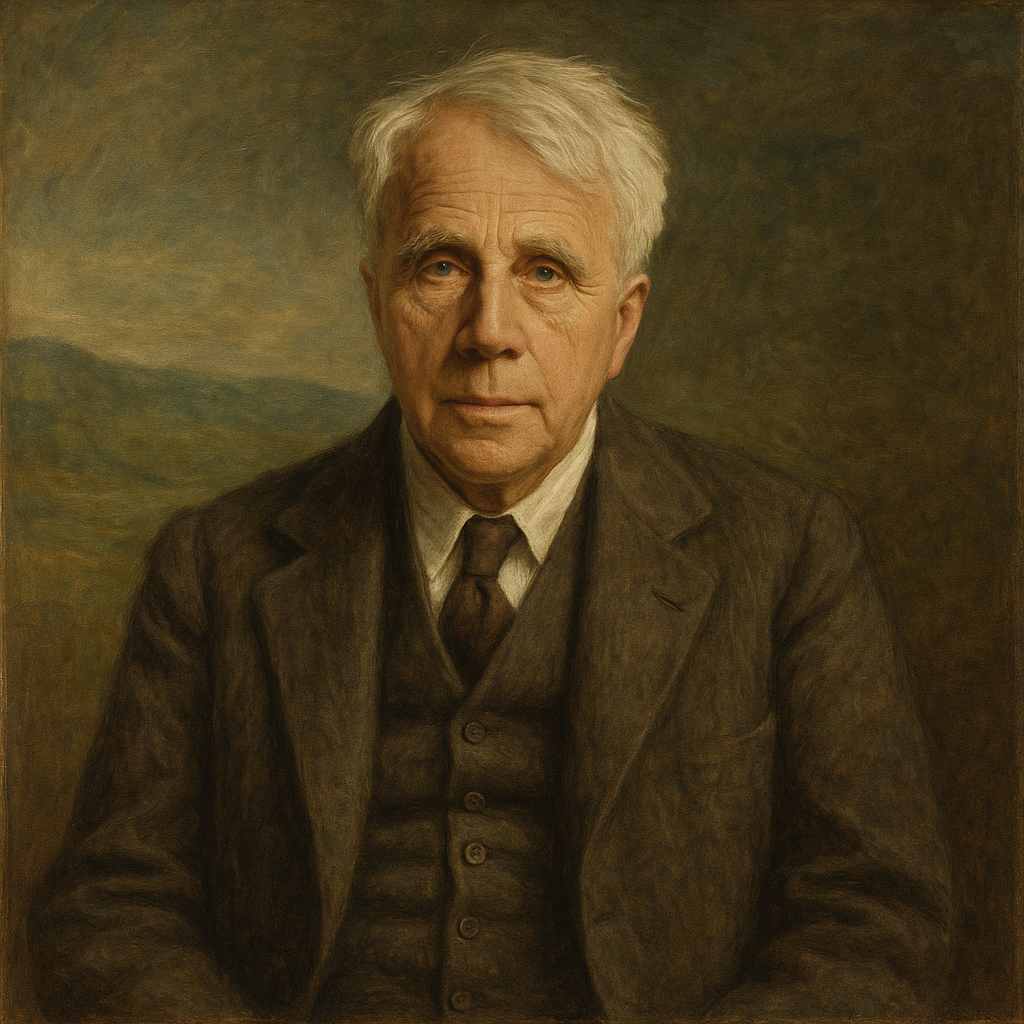Fire and Ice
Robert Frost
1874 to 1963

Some say the world will end in fire,
Some say in ice.
From what I’ve tasted of desire
I hold with those who favor fire.
But if it had to perish twice,
I think I know enough of hate
To say that for destruction ice
Is also great
And would suffice.
Robert Frost's Fire and Ice
Robert Frost's "Fire and Ice" is a deceptively simple poem that explores profound themes of human nature, apocalyptic scenarios, and the destructive power of human emotions. Through its concise nine lines, Frost masterfully weaves together contrasting elements to create a thought-provoking meditation on the potential end of the world.
The poem opens with a juxtaposition of two opposing forces: fire and ice. These elements serve as metaphors for different aspects of human experience and potential causes for the world's destruction. Fire, traditionally associated with passion, desire, and intensity, is contrasted with ice, which evokes notions of hatred, indifference, and emotional coldness. This dichotomy sets the stage for Frost's exploration of the human psyche and its capacity for both creative and destructive impulses.
Frost's use of colloquial language, evident in phrases like "Some say" and "I hold with," gives the poem a conversational tone that belies its philosophical depth. This accessible style allows the poet to engage with weighty topics without alienating the reader, making the poem's themes more relatable and immediate.
The structure of the poem is particularly noteworthy. Its rhyme scheme (ABAABCBCB) and meter (loosely iambic tetrameter) provide a sense of order and balance, mirroring the careful consideration of the two destructive forces. This formal structure contrasts with the chaotic and apocalyptic subject matter, creating a tension that underscores the poem's themes.
In the first four lines, Frost aligns himself with those who believe the world will end in fire, citing his experience with desire. This personal reflection adds an autobiographical element to the poem, suggesting that the speaker's own passionate nature leads him to favor the fiery conclusion. The use of "tasted" in relation to desire is particularly evocative, appealing to the senses and emphasizing the visceral nature of human passions.
The turning point of the poem occurs in the fifth line, "But if it had to perish twice," which introduces a hypothetical scenario that allows Frost to consider the alternative. This pivot demonstrates the speaker's willingness to entertain multiple perspectives, adding depth to the poem's philosophical inquiry.
In the latter half of the poem, Frost introduces hate as the emotional counterpart to desire. The phrase "I think I know enough of hate" suggests a regretful familiarity with this destructive emotion. By equating ice with hate, Frost expands on the metaphor, implying that coldness and indifference can be just as destructive as fiery passion.
The final two lines of the poem, "Is also great / And would suffice," deliver a powerful conclusion. The use of "great" to describe ice's destructive potential is ambiguous, potentially referring to both its magnitude and its terrible nature. "Suffice" is particularly impactful, suggesting that either fire or ice would be more than capable of bringing about the world's end. This conclusion leaves the reader with a sense of the precariousness of existence and the equal threat posed by extreme emotions.
Frost's poem can be interpreted on multiple levels. On a literal level, it contemplates actual apocalyptic scenarios. Metaphorically, it explores the destructive potential of human emotions. On a broader scale, it can be seen as a commentary on human nature and the cyclical patterns of creation and destruction that characterize our existence.
The brevity of "Fire and Ice" belies its complexity. Through its masterful use of metaphor, structure, and language, Frost creates a multi-layered poem that invites repeated reading and interpretation. Its enduring popularity and relevance speak to its success in distilling complex ideas into a accessible and thought-provoking form, making it a quintessential example of Frost's poetic genius and a worthy subject of study for students of literature.
This text was generated by AI and is for reference only. Learn more
Want to join the discussion? Reopen or create a unique username to comment. No personal details required!



Comments
No comments yet. Be the first to comment!